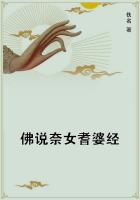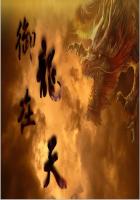"The jewelry is worth at least a hundred sequins, and the tax certainly does not amount to more. And, if it were more, I should entreat the governor until he accepted the jewelry as the second tax. Thus it shall be. O dear mother, look down upon your daughter, and do not be angry with her for parting with the costly souvenir given her by you on your death-bed! Do not be angry, and see in it only love for my father!"She bowed her head, and kissed the pearls which had once adorned her mother; kissed the necklace and the tiara that had once shone on her dear head.
"O mother, I had thought, that on my wedding-day, I too should wear these costly ornaments. But I know that it will be a matter of indifference to him, the only one for whom I wish this day to come.
He would not look at the glittering jewels, but only at me. Itherefore willingly part with them; I do not care, for he whom Ilove will not be grieved if I come to him unadorned."A blissful smile overspread her lovely countenance.
She closed and locked the casket, and hid it under her veil. She hastily walked down the stairway, out of the house, and toward the mosque, where the men had begun to assemble, each one bringing with him his proportion of the tax.
"Tell me, ye men," asked Masa, quickly, "what is the amount of the tax you are called on to pay?""The simple tax, Masa, amounts to one hundred sequins. Consider how heavy a burden this alone is. There are hardly fifty men of us living here in Praousta, and really it seems to us quite sufficient that each of us has two sequins to pay at the end of each summer.
But to pay the double tax is simply impossible. Your father well knew this, Masa, and he therefore sternly commanded us not to pay, as the demand was contrary to law and justice.""A hundred sequins," cried she, with sparkling eyes. "Then all is well. Come, ye men of Praousta let us ascend the stairway. The hour of the second prayer has not yet come, and until then, with the tschrobadji's consent, Mohammed Ali has granted us a respite. Wait on the crest of the rock above until I call you. I shall now go to the tschorbadji; pray ye, in the mean while, to Allah, that my words may prove effectual."She ascended the stairway with flying footsteps. With dejected looks, the men slowly followed. "We are wrong in allowing her to persuade us to submit to the tschorbadji. We will, however, pay the just tax, and no more. We would not pay more, even if we could. Here let us stay and await the call of our sheik's daughter.""And let us pray, as she requested," murmured others. On bended knees, and with solemn countenances, the men, but now so noisy and fierce, awaited Masa's return in silence.
The white dove flew up the pathway, through the courtyard, and into the palace, regardless of a number of her father's old friends who were lying on the ground before the gate. She dare not stop to speak to them, for the sheik could seek to learn on what errand his daughter goes alone to the palace. If she should tell him, he would command her to return to her father's harem, there to await in patience the fate Allah should have in store for his children. No, she cannot approach him, cannot brave his questioning; she would then be compelled to disobey him, for her father's life must and shall be preserved.















